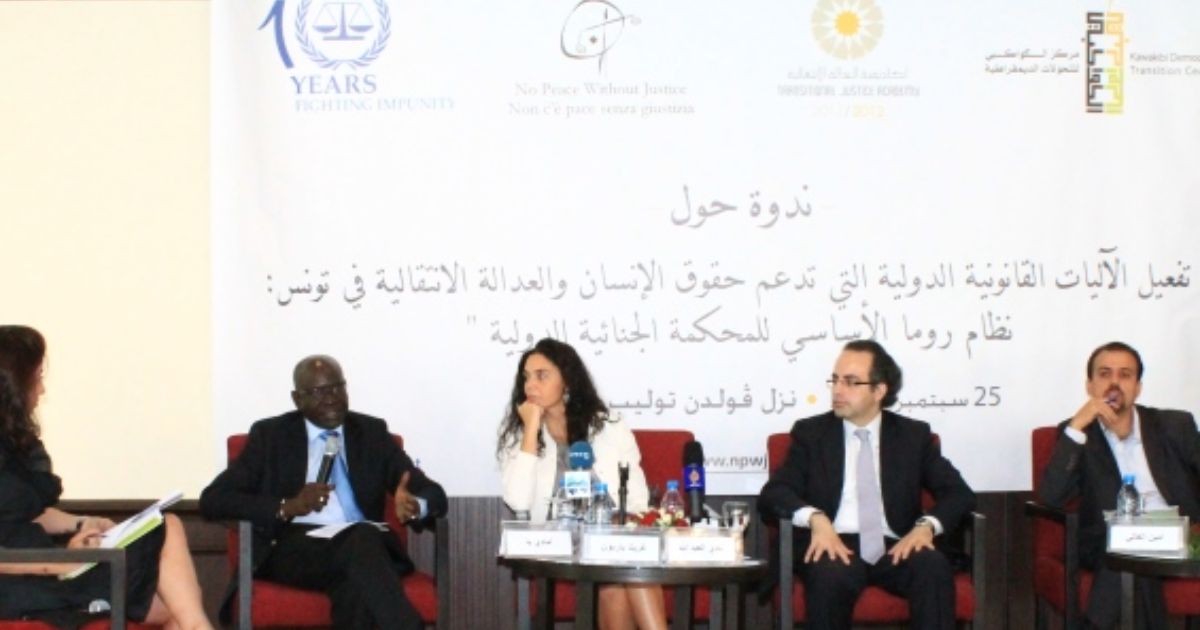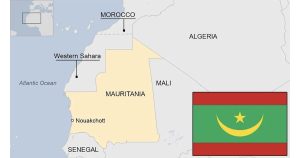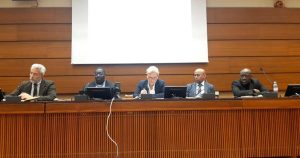H E Noureddine Bhiri, Minister of Justice, opened the discussions stressing the importance of the Rome Statute and the positive role that Tunisia can play to advance ICC issues in the region. Tunisia is one of the few Arab countries that has ratified the Rome Statute and through its commitment for human rights it can continue being a model for democratic transition. Fadi El Abbdallah, ICC Spokesperson and Head of the Public Affairs Unit, introduced the main features of the ICC, stressing its independence from other institutions and the centrality of victims in the Rome Statute System. He was followed by Mohsen Marzouk, founder of KADEM, who highlighted how civil society can promote human rights and accountability in the country.
Amady Ba, Head of International Cooperation at the ICC Office of the Prosecutor (OTP), touched upon the main policies of the OTP and the principle of complementarity. In their interventions, Amine Ghali (KADEM) and Greta Barbone (NPWJ/KADEM) highlighted how the Rome Statute could strengthen transitional justice by serving as a model to improve national legislation on various issues, including victims’ participation and reparations, victims’ and witnesses’ protection, fair trial rights, substantive elements of crimes under international law and modes of criminal responsibility.
In particular, Ms Barbone stressed that one of the most important features of the Rome Statute is the recognition of the central role of victims, their right to participate in proceedings and their right to obtain reparations. Over the past ten years, the ICC has been developing its internal procedures and case law in relation to victims and very recently it has issued its first decision on the principles to apply in respect of awarding reparations. The experience of the ICC can be used as a model in Tunisia to reform the legal and conceptual framework on victims’ participation and reparations, so that it engages all groups of victims and renders transitional justice and reparations truly comprehensive.
There were more than 100 participants in the High Level Opening Session, including H.E. Piero Benassi, the Italian Ambassador; Chawki Tabib, the President of the Bar Association, representatives of relevant ministries, legal professionals, judges, Tunisian and foreign non-governmental organisations and the media.
The High Level Opening Session has launched four days of activities, including a training course for the judiciary, legal professionals, representatives of the relevant ministries and civil society and meetings and lectures with lawyers, judges, civil society and law students. The main goal of these events is to provide a forum for discussion on the challenges and opportunities for implementing the Rome Statute and to find strategies to advance human rights and transitional justice in the country by engaging Tunisian civil society, ICC representatives and other professionals and stakeholders that have a key role in promoting transitional justice in Tunisia, including implementation of the Rome Statute.
For further information, please contact Greta Barbone on gbarbone@npwj.org and +216 28385079 or Nicola Giovannini on ngiovannini@npwj.org or +32 2 548-39 15.
For more information about NPWJ and KADEM’s work on transitional justice in Tunisia, please click here




